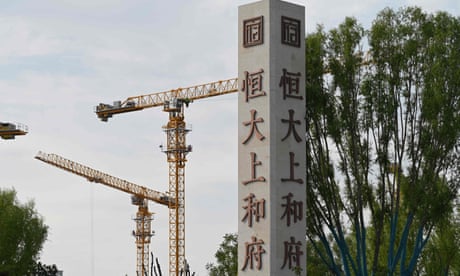China’s factory activity has shrunk unexpectedly amid curbs on electricity use and rising prices for commodities and parts, raising more concerns about the state of the world’s second biggest economy.
A closely watched survey released on Thursday showed that China’s factory activity contracted in September for the first time since the pandemic took a grip in February 2020.
The figures showed that output fell thanks to a marked slowdown in high-energy consuming industries, such as plants that process metals and oil products. Sub-indices also highlighted a fall in new orders, employment and new export orders.
Analysts had expected the manufacturing purchasing manager’s index (PMI) to remain steady at 50.1 in September, but the official result showed the index at 49.6. The 50-point mark separates growth from contraction.
China’s economy rapidly recovered from a pandemic-induced slump last year. Although the non-manufacturing PMI provided a welcome bright spot for September, momentum has broadly weakened in recent months, with its sprawling manufacturing sector hit by rising costs, production bottlenecks and electricity rationing.
Good morning: China manufacturing PMI contracts below 50 to 49.6 & the details are terrible:
— Trinh (@Trinhnomics) September 30, 2021
Output, new orders, employment, new export orders all down!
Note that this is mostly impacting small firms. pic.twitter.com/lxB6ZCWgtw
Another sign of the energy crisis came late on Wednesday when the Russian state energy company Inter RAO said China had asked it to increase electricity supplies to offset shortages at home.
Inter RAO was considering a significant increase in electricity supply, a spokesman said, providing no further details. Russia can supply up to 7bn kilowatt-hours of power to China every year but the exports fell last year by 7.2%.
The sudden contraction in factory activity will further weigh on an economy already facing serious problems in its bloated property sector, chiefly in the form of the struggling behemoth Evergrande.
The Shenzhen-based company owes $305bn to homebuyers, contractors and investors, and the possibility of it defaulting on deals to finish homes and pay out on investment products brought a rash of public protests and saw its shares plunge. Although it calmed some market nerves last week by repaying some local debt, it missed a repayment on interest on dollar-denominated bonds, and missed a repayment deadline on another bond coupon on Wednesday night.
The property sector accounts for up to 25% of GDP according to some estimates, but the country’s huge tech sector is also facing a sustained assault from the government in Beijing as it tries to push back against billionaires in its pursuit of “common prosperity”.
Leading forecasters such as Goldman Sachs and Nomura have downgraded their expectations for GDP growth.
Economies throughout the world are grappling with production issues due to supply chain disruptions. UK car production fell 27% in August because of a shortage of semiconductors, and data on Thursday showed Japan’s industrial output falling for a second straight month in August.







